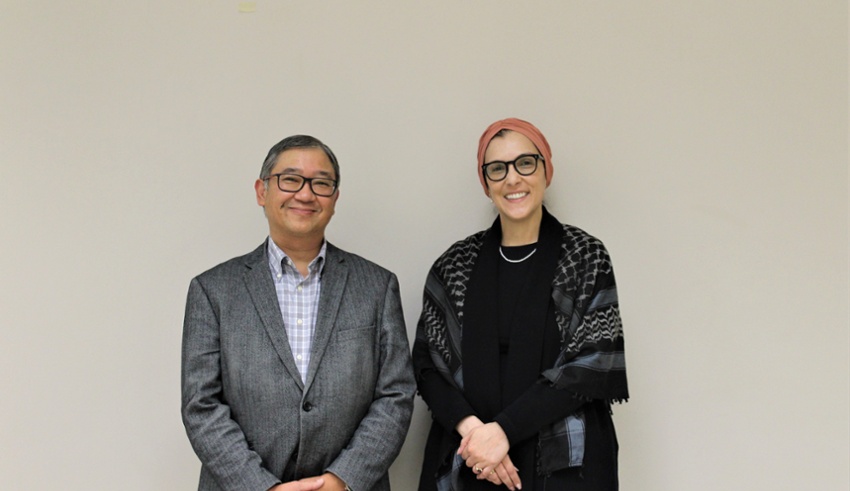Catholic Milestones in Interfaith Dialogue
Ad Petri Cathedram
Ad Petri Cathedram, issued on 29 June 1959, is the first encyclical written by Pope John XXIII. Famous for its promotion of truth, unity and peace, Ad Petri Cathedram was a precursor to The Second Vatican Council (1962-1965), as it laid out John XXIII’s goals for the council.
Click here to read the full text.
The Second Vatican Council
The Second Vatican Council is the twenty-first ecumenical council in the history of the church. It opened under its convenor, Pope John XXIII, on 11 October 1962, and concluded under his successor, Pope Paul VI, on 8 December 1965. The Second Vatican Council is a watershed event in the history of the church’s relation to ecumenism, interfaith dialogue and renewal of the liturgy.
Click here for a brief history of the Second Vatican Council.
Ad Gentes
Ad Gentes, the Second Vatican Council’s decree on the missionary activity of the church, was promulgated by Pope Paul VI on 7 December 1965. In the words of his successor, Pope John Paul II: “Ad Gentes not only strengthens the mission abroad, it also increases our fervour for the faith at home” (USCCB). The significance of engaging in fruitful dialogue between different faith traditions is both the focus and the goal of this decree.
Click here to read the full text of AD Gentes.
Dignitatis Humanae
Promulgated on the 7 December 1965, Dignitatis Humanae is the Second Vatican Council’s declaration on religious freedom. The council declares that every person has a right to religious freedom which “means that all men are to be immune from coercion on the part of individuals or of social groups and of any human power” (DH 2). Dignitatis Humanae calls not only Catholics, but all religious persons to be respectful of every human’s right to religious freedom.
Click here to read the full text of Dignitatis Humanae
Gaudium et Spes
Gaudium et Spes, the pastoral constitution on the church in the modern world, was promulgated by Pope Paul VI on 7 December 1965. Considered the most important document in the church’s social tradition because its focus is for the common good, Gaudium et Spes urges the church to interpret the gospel according to the signs of the times.
Click here to read the full text Gaudium et Spes.
Nostra Aetate
The most profound expression of the church’s desire to engage in interfaith dialogue can be found in Nostra Aetate, the Second Vatican Council’s declaration on the relation of the church with non-Christian religions. Promulgated on 28 October 1965, nearly 50 years later, Nostra Aetate still remains a reference source of guidelines and procedures for engaging in dialogue with other religions, especially Judaism and Islam.
Guidelines and Suggestions for Implementing Nostra Aetate
The fourth paragraph of the Second Vatican Council’s declaration on the relation of the church with non-Christian religions, Nostra Aetate, presents guidelines and suggestions for its implementation. On the ninth anniversary of the declaration, the Commission for Religious Relations with The Jews published a signature document to pursue the guidelines and suggestions laid out in the original document with Jews.
Click here to read the Guidelines and Suggestions for Implementing Nostra Aetate.
Evangelii Nuntiandi
The apostolic exhortation Evangelii Nuntiandi, was issued on 8 December 1975 by Pope Paul VI. Focused on evangelization, Evangelii Nuntiandi defines the promulgation of the faith as central to the church’s identity.
Click here to read Evangelii Nuntiandi.
Redemptoris Missio
The encyclical Redemptoris Missio, on the permanent validity of the church’s missionary mandate, was issued by Pope John Paul II on 7 December 1990. Redemptoris Missio stresses the urgency of evangelization in relation to ecumenism, interreligious dialogue, and the development of people.
Click here to read the full text.
Dominus Iesus
Dominus Iesus, a declaration of the Congregation for the Doctrine of the Faith, concerns the unicity and salvific universality of Jesus Christ and the Church in the modern world. Issued on the 6 August 2000, Dominus Iesus sheds light on details of the ecumenical situation in the 21st century.
CCCB comment on reported remarks by Bishop Fellay, Superior General of the Society of St. Pius X
Friday, January 18, 2013
Questions and concerns have been raised following recent media reports about a statement that had been made in Canada by the Superior of the Society of Saint Pius X that “the Jews” are the "enemies of the Church". The Canadian Conference of Catholic Bishops notes that such remarks are not in accordance with the teaching of the Catholic Church. As the spokesperson for the Holy See, Father Federico Lombardi, S.J., has said when commenting on the statement, “It is absolutely unacceptable, impossible, to define the Jews as enemies of the Church.”
The Second Vatican Council taught in Nostra Aetate, its Declaration on the Relation of the Church to Non-Christian Religions (no. 4): “God holds the Jews most dear for the sake of their Fathers; he does not repent of the gifts he makes or of the calls he issues – such is the witness of the Apostle [Paul].... [T]he Church, mindful of the patrimony she shares with the Jews and moved not by political reasons but by the Gospel's spiritual love, decries hatred, persecutions, displays of anti-Semitism, directed against Jews at any time and by anyone." This teaching has been reiterated time and time again by Popes John Paul II and Benedict XVI.
The Canadian Conference of Catholic Bishops denounces all forms of anti-Semitism, and rejects assertions such as those reported to have been made by the Superior of the Society of Saint Pius X, which is a schismatic group not in communion with the Catholic Church.



